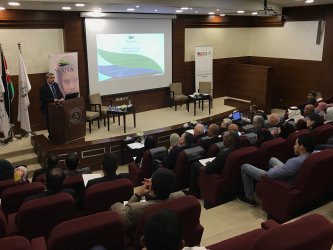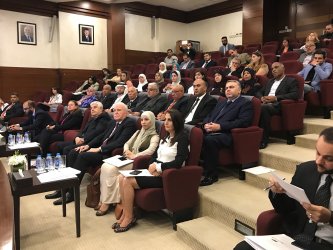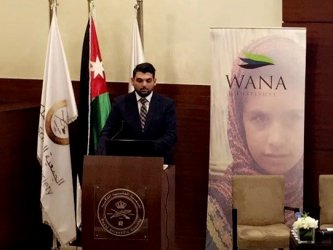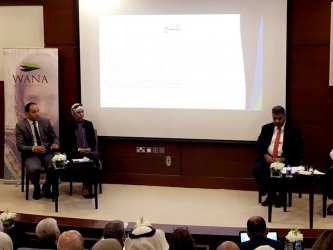-
Regulatory Reform Needed to Strengthen Civil Society in ...
Regulatory Reform Needed to Strengthen Civil Society in Jordan
On 3 October, the West Asia – North Africa (WANA) Institute launched its Advocacy Strategy for Civil Society Organisations (CSOs): Towards a Regulatory Reform. The event was held under the patronage of HRH Prince El Hassan bin Talal, and was chaired by H.E Dr. Mohammad Abu Hammour, Secretary General of the Arab Thought Forum. 50 government officials and representatives from civil society organisations, think tanks, international organisation, and academic institutions attended.
The advocacy strategy was collectively designed by 40 Jordanian community-based organisations (CBOs) under the guidance of the WANA Institute, based on the WANA Institute’s needs assessment and roundtable discussion between CBOs/CSOs, think tanks and government officials. The strategy aims for regulatory reform by reaching out to decision-makers and stakeholders.
The strategy recommends amending the 2008 Law of Societies - according to which a minimum of seven people can register as a society - to be made compatible with international standards. In addition, CSOs need to be empowered in administration and finance to be able to comply with the law. The capacities of the ministries involved also need to be built to better monitor and evaluate the societies.
A Strengthened Civil Society in Jordan
Earlier in 2017, the WANA Institute assessed the needs and strengths of 135 community-based organisations (CBOs) in Jordan. The results are now made public in a report titled The Value Added of a Strengthened Civil Society in Jordan. A panel of four CBO representatives discussed the research findings and debated the legal, financial, social, and technical challenges CBOs in Amman, Mafraq, Karak and Zarqa face.
To facilitate the work of civil society in Jordan, the researchers recommend enhancing the coordination between the Ministry of Planning and International Cooperation, the Ministry of Finance, and the Ministry of Social Development. “We need to ease the formalities facing CSOs by creating an umbrella for the government departments dealing with them,” said H.E Dr. Mohammad Abu Hammour.
A joint council between the state and civil society organisations is also needed, in addition to a genuine partnership with the private sector. “There is a trust issue between civil society and the government, thus the government can’t be the one who determines the civil society priorities,” advocacy expert Mahmoud Hishmah explained.
Furthermore, CBOs require training on the tools of campaigning, mobilisation and advocacy to be able to advocate for their demands and to design their projects as a direct response to the needs of the local communities.
This assessment was supported by the U.S. government’s Middle East Partnership Initiative (MEPI).




